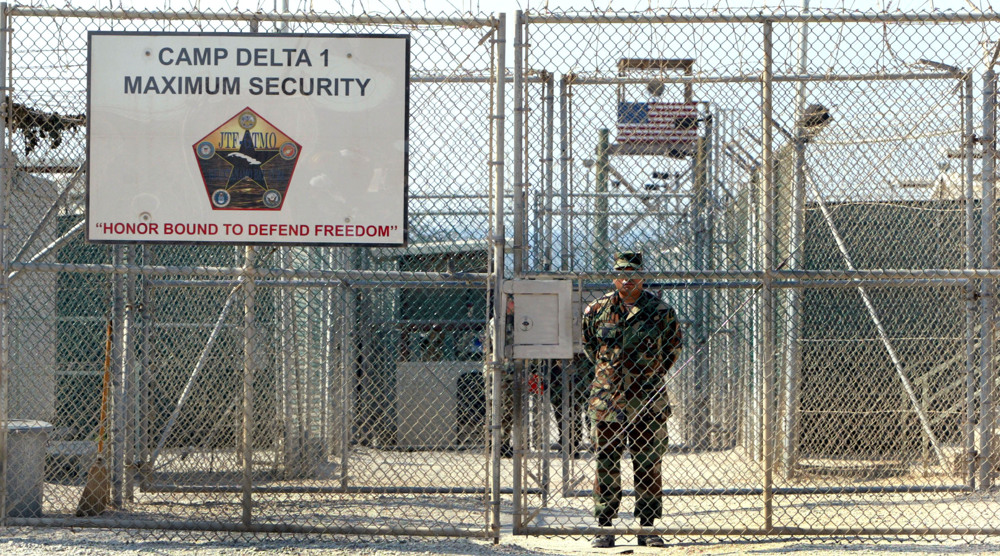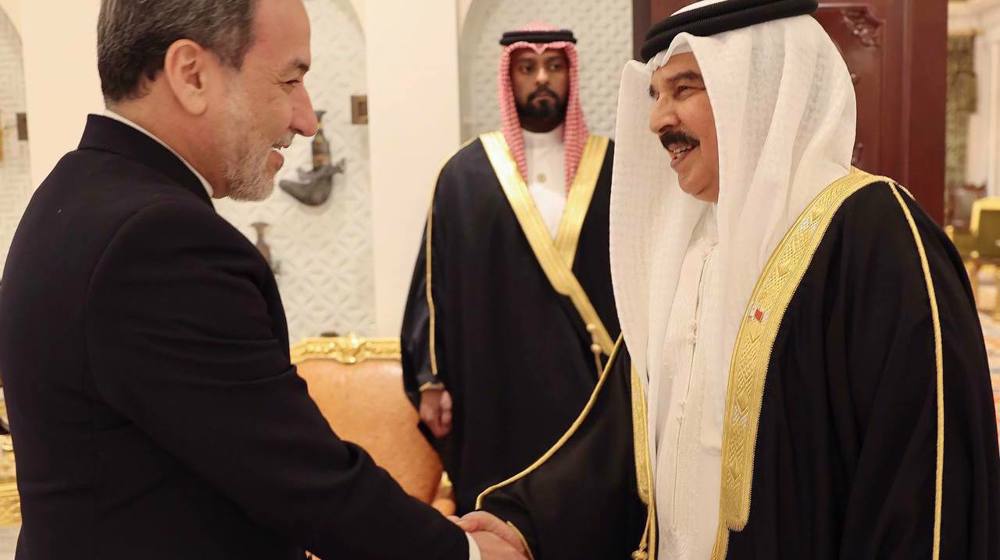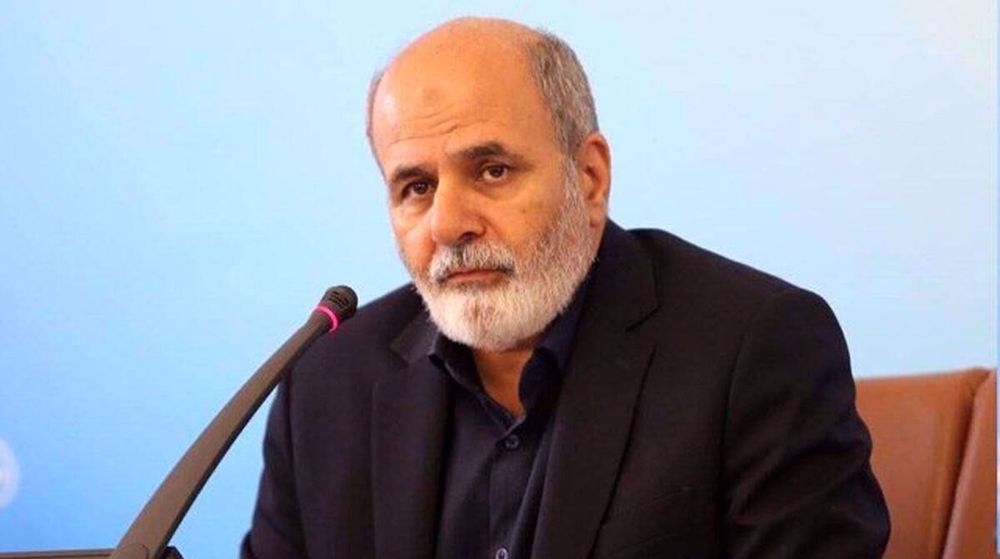May in Bahrain to start 'new chapter' despite international outrage
UK Prime Minister Theresa May has arrived in Bahrain to expand ties with Arab countries of the Persian Gulf region, ignoring international calls to scrap the trip due to widespread violations of human rights by some of those governments.
May was welcomed by Bahrain's Prime Minister Prince Khalifah bin Salman Al Khalifah upon her arrival at Bahrain International Airport in Manama on Monday.
Before departing London for a two-day visit to the tiny Persian Gulf country, May said she was headed there to lay the foundations for “a new chapter” in ties with members of the Persian Gulf Cooperation Council (GCC), which is formed by Saudi Arabia, Kuwait, the United Arab Emirates, Qatar, Bahrain, and Oman.
The expansion of ties is critical now because the UK plans to leave the European Union (EU), May noted.
“There is so much we can do together - whether it is helping one another to prevent terrorist attacks, (Persian) Gulf investment regenerating cities across the UK or British businesses helping (Persian) Gulf countries to achieve their long-term vision of reform,” she said.

The British premier is slated to attend a dinner with GCC leaders on Tuesday evening, before giving a speech at the organization’s plenary session on Wednesday.
She will also sign a space technology deal with the UAE, as well as a new multiple five-year visa entry plan for British firms working in Saudi Arabia.
Overshadowing the visit from days ago, however, has been a deep concern about May’s reluctance to address the Al Khalifah regime’s heavy-handed crackdown on a years-long popular uprising in the country.
May took a cautious line on the issue, saying that human rights abuses should not affect London’s trade policy.
“No doubt there will be some people in the UK who say we shouldn't seek stronger trade and security ties with these countries because of their record on human rights,” she said.
“But we don't uphold our values and human rights by turning our back on this issue,” she continued, adding that the UK was going to continue its ties with the Persian Gulf monarchies to “keep our people safe and create new opportunities for business.”

Aside from aiding Bahrain in its ongoing crackdown, Britain has drawn great criticism for striking major arms deals with Saudi Arabia, despite the regime’s months-long bloody military onslaught against neighboring Yemen.
Hopes for an end to Britain’s unconditional support for Saudis were further crushed when UK Foreign Secretary Boris Johnson said Sunday that Saudi Arabia was far from crossing the “threshold” in bombing Yemen.
“So far we do not believe there has been a clear risk of breach of humanitarian law in respect of the use of those weapons,” said Johnson.
Riyadh is the biggest customer for UK-made weapons..
Jan. 15: ‘Axis of Resistance’ operations against Israeli occupation
VIDEO | US fires: Criticism mounts over govt. failure to respond
VIDEO | Fears, hope in Gaza amid intensified ceasefire efforts
VIDEO | Press TV's news headlines
Hamas: Ceasefire agreement result of steadfastness, resistance in Gaza over 15 months
Hamas thanks Iran, Resistance Front following achievement of ceasefire in Gaza
'Capitulation': Israeli officials and media concede Gaza defeat as truce unfolds
'Gaza has won': Social media users react to ceasefire with mix of relief, joy










 This makes it easy to access the Press TV website
This makes it easy to access the Press TV website